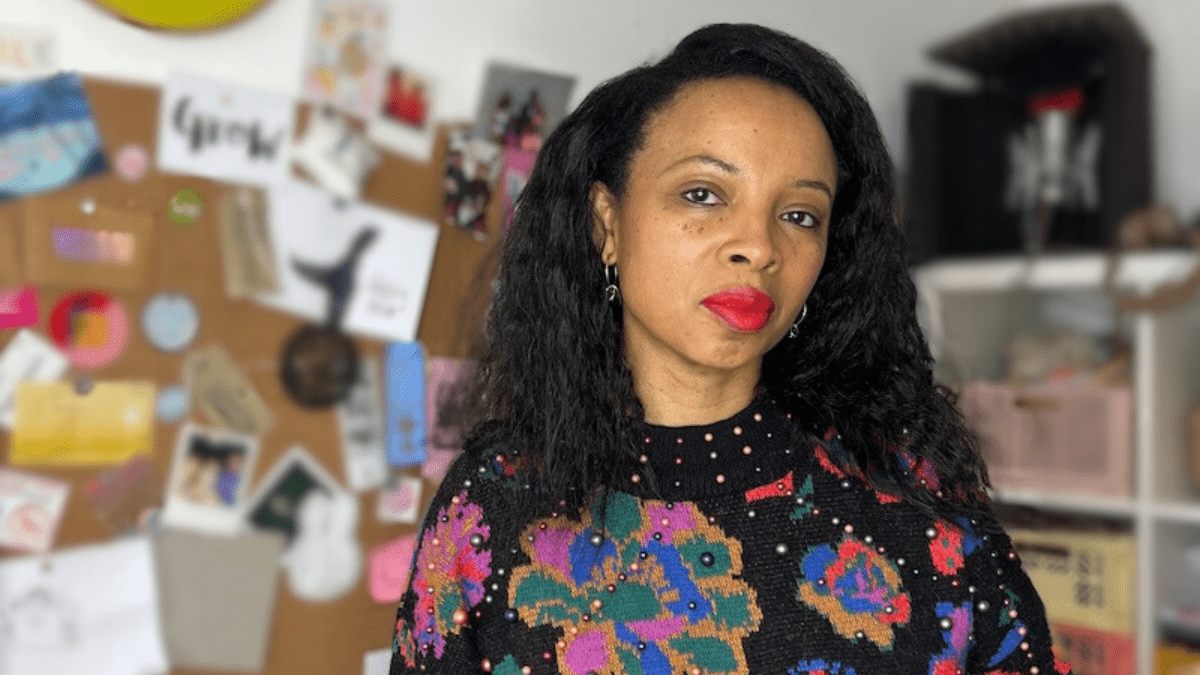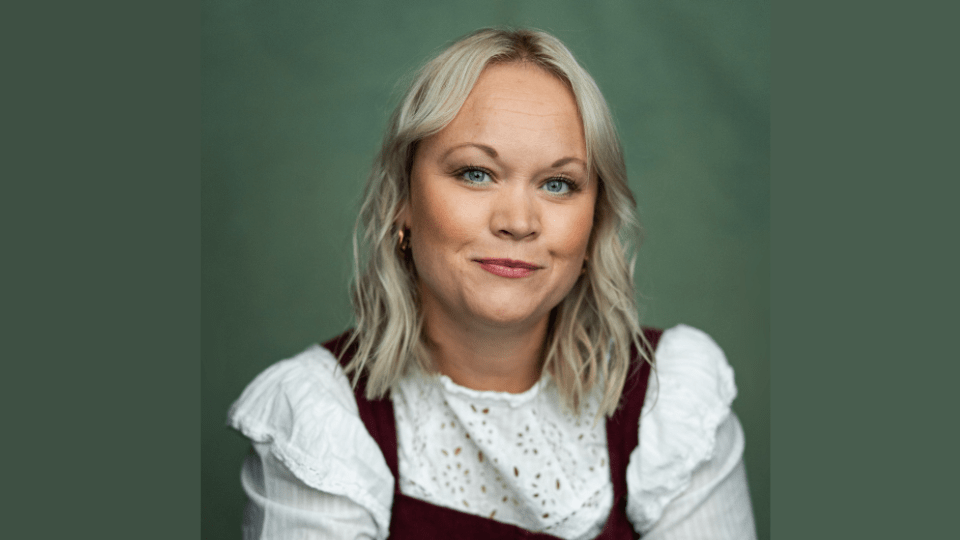Standing Firm in Your Refusal: A Conversation with Natalie Lue on Healthy Relationships
Are you one of those people who often say “yes” to everything, out of a desire to please others and not disappoint them? Have you ever thought about the long-term consequences of this practice? According to a study by the Chartered Institute of Personnel and Development (CIPD), 69% of employees feel that they have to respond favourably to work requests, even when they are already overloaded. This attitude can lead to “burn out”, a drop in productivity and an increase in stress levels. How can we redefine our boundaries and start saying “no” without feeling guilty? These are questions that Natalie Lue, an expert in human relations and behaviour, dedicates her work to.
Natalie Lue’s direct yet empathetic approach has helped her build a community in over 140 countries. She has been featured in The New York Times, The Washington Post, NPR, and the BBC. As a writer, author, and artist, her self-published books have reached over 150,000 readers, and her podcast, “Baggage Reclaim,” has garnered over 3 million downloads.
In this interview, Natalie shares her expertise on complacency, empathy, and building resilience and assertiveness in young people. Her work paves the way for healthy relationships and personal empowerment.
1) What is your definition of “complacency” and why do you think this behavior is so prevalent in today’s society?
Complacency is essentially defined as putting the needs, desires, expectations, feelings, and opinions of others before one's own, in order to gain attention, affection, approval, love, and validation, and also to avoid conflict, criticism, stress, disappointment, and even rejection or abandonment. This tendency is often rooted in our childhood in response to past hurts and signals of what we perceived as good or bad.
We are taught from a young age what we need to do to be useful and to be seen as good within our family unit, and these behaviors become our role models. Complacency thus becomes a habit of anxiety and a mechanism to manage that anxiety, even if it ends up creating even more anxiety.
However, this behavior, sometimes referred to as "people-pleasing disease," has spread like an epidemic in our society, as I highlight in my book "The Joy of Saying No."
We were all raised in what I call the “era of obedience.” This is the period in recent centuries, marked by colonization, imperialism, and the industrial revolution, when disciplining, interacting, and communicating with children was aimed at making them excessively obedient, especially to authorities. The saying “children should be seen and not heard” is a striking example of this.
Conformity became crucial when people were moved against their will from one part of the world to another, or when they were needed in factories and fields to meet the needs of a society that had become a consumer of goods rather than a producer. Schools were designed to produce obedient individuals ready to enter the workforce and perform according to expectations. Religion also played an important role in enforcing this conformity.
Today we face a crisis of mental health, loneliness, with high rates of suicide and self-harm. Many struggle with boundary issues and family dynamics, with disclosures of abuse being sadly all too common. This is partly a legacy of the era of obedience, where the emphasis was on obedience rather than individual empowerment. By teaching people to be overly obedient, they are also being taught not to listen to their own inner voice.
2) You describe yourself as recovering from an addiction to pleasing others. Could you share with us your own personal journey?
Growing up as a black girl in a Jamaican-Chinese family on one side and a Jamaican family with Jewish heritage on the other, I understood early on that I had to work 100 times harder to achieve the same goals as everyone else, and that being average was simply not acceptable. All of these factors, combined with my parents’ separation, struggles at home, frequent moves, and feeling like I didn’t fit in or belong, fueled a pattern of people-pleasing behavior. It took becoming seriously ill to force myself to confront my childhood trauma and some of my adult trauma as well. I realized that I couldn’t recover from this illness without confronting my issues and changing my people-pleasing habits; it was simply not possible anymore.
The first page of this new chapter began for me in August 2005. In the space of eight months, by revisiting my relationship with myself, learning to assert myself and set boundaries in my relationships, I cured sarcoidosis, the immune system disease from which I suffered. So I have since left my people-pleaser habits behind.
3) How does setting boundaries play a crucial role in freeing oneself from people-pleasing?
"People-pleasing" basically means avoiding being yourself.
You are afraid that if you say "no" you will face negative consequences. Therefore, you say "yes" not out of sincere desire, but out of fear of repercussions.
In doing so, we sacrifice our own needs, desires, expectations, feelings, and opinions to avoid confrontation. Every time we say “yes” to something, we are implicitly choosing not to do something else. This is an important concept to keep in mind when making decisions. Choosing one option often means giving up another.
Our boundaries define what works and doesn’t work for us; they are an expression of ourselves. Healthier boundaries allow us to fully embody who we are. When we learn to set healthier boundaries, we are effectively saying, “I’m going to be more honest about my yeses and noes. I’m going to be more honest about who I am.” We put ourselves first and learn to distinguish between our needs and the needs of others.
So, the healthier our boundaries, the less likely we are to be people-pleasing. By setting clear boundaries, we honor our own needs and free ourselves from the pressure to always please others. This allows us to build more authentic and balanced relationships, based on mutual respect and understanding of our own limits.
4) What other techniques do you suggest for people who want to stop this trend?
Learn to take responsibility for your choices, your words, and your decisions. Use discernment. Eventually, you will feel that you can count on yourself. You will feel like you have your own support. And when you feel like you can count on yourself, you will have more confidence in yourself. This increased confidence makes you feel like a valuable and worthwhile person.
I also think it’s important to be more aware of your inner critical voice and to know how to differentiate it from authentic intuition. This can really help build self-confidence. While the inner critic exists in all of us, it doesn’t define our identity.
5) Empathy is at the heart of our “Can You” game. What role does it play in the process of saying “no,” and how can understanding others’ perspectives help us handle “no” more compassionately?
Empathy and saying “no” are closely related. People-pleasers often see themselves as highly empathetic individuals, even calling themselves empaths. However, as people-pleasers, we tend to over-feel and over-empathize, projecting our own fears and emotions onto others. True empathy is the ability to recognize another person’s perspective and experiences, even if they differ from our own.
Instead of truly understanding the other person’s position, we sometimes get too involved, allowing their story to overwhelm us and dictate our behavior. This is not empathy; it is over-empathy. True empathy is recognizing the need to respect boundaries and individuality. Rather than focusing on ourselves, we recognize that each person has their own characteristics, circumstances, and history that influence their actions.
Compassion is key here because it allows us to understand the difficulties others may have in accepting our boundaries. We acknowledge their struggles while still affirming our need to say no when necessary. Recognizing that boundaries nurture relationships, fostering honesty and intimacy, demonstrates true empathy. It’s about understanding the mutual benefit of truth in a relationship, facilitating growth and understanding for both parties.
6) How can parents find a balance between teaching children to be considerate of others' feelings while encouraging them to assert their own boundaries and needs?
We can all recall childhood experiences where we were told we were selfish or difficult if we didn’t want to share toys, cuddle, or play with others. What I’ve found helpful with my daughters is to maintain an ongoing dialogue with our children. First, we help them understand their own feelings, and then we explore how the other child might be feeling. It’s important to emphasize that they don’t have to sacrifice their own feelings for someone else’s. Teach them that being considerate of another child’s feelings doesn’t have to come at the expense of not considering their own.
By encouraging them to recognize and respect both, they develop empathy and gain a more honest view of the world. This approach allows them to recognize and handle situations where others might feel uncomfortable. Asking questions such as: “Have you ever been in a similar situation?” “How did you feel at that moment?” “How did you get through it?” or “How did you feel afterward?” This method helps them become aware of others’ emotions so they can handle similar situations with autonomy.
Links:
Natalie Luewww. natalielue.com
The Joy of Saying No www. natalielue.com/the-joy-of-saying-no-by-natalie-lue/


